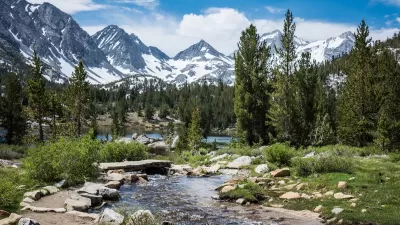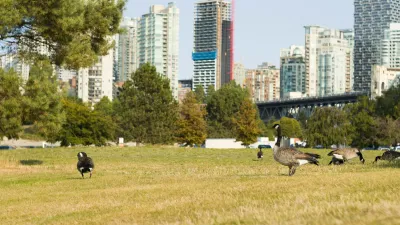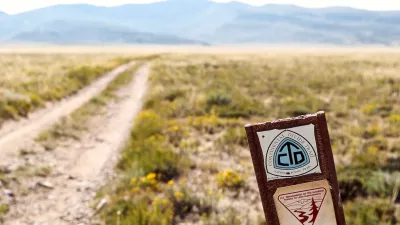Should the state dedicate five percent of its substantial oil and natural gas taxes to conservation efforts? Outdoors groups, hunters, and environmental activists say yes; energy companies say no, and millions of dollars are being spent on each side.
Appearing on the North Dakota ballot on Tuesday is Measure 5, an initiated constitutional amendment that "would redirect five percent of the state's oil extraction tax to a Clean Water, Wildlife, and Parks Trust and a Clean Water, Wildlife, and Parks Fund.[1]", according to Ballotpedia,
Daniel C. Vock, Governing’s transportation and infrastructure reporter, writes that the beneficiaries of the state's oil extraction tax have been diverse. "It has cut income and property taxes, built new roads and set aside more money for schools -- all while building up a sizable savings account."
Missing are measures the proponents want to see funded, "such as buying land (for conservation), creating parks, improving fish and wildlife habitats, preventing flooding, improving water quality and educating school children about the environment," writes Vock.
The main point of contention is whether it is wise to lock up as much as $150 million a year in state tax money for the foreseeable future when the growing state has so many other needs.
Critics of the measure don't want to reduce the amount of non-targeted oil tax revenues when the state is experiencing tremendous growth due to the burgeoning energy industry. The state is now the second largest oil producer after Texas.
Measure 5 was placed on the ballot by signature-gathering. "Ducks Unlimited is the biggest financial backer, pitching in $1.9 million of the $2.9 million raised by proponents so far," writes Vock.
The oil industry is leading the opposition, contributing nearly half of the $2.2 million raised by foes of the measure. Business groups, farmers and education advocates are also against the plan.
Readers might be interested in Governing's "2014 Ballot Measures That Matter Most for States and Localities: We're tracking more than 50 of the most important statewide ballot measures this year."
FULL STORY: North Dakota Fights over How to Spend Huge Oil Revenues

Trump Administration Could Effectively End Housing Voucher Program
Federal officials are eyeing major cuts to the Section 8 program that helps millions of low-income households pay rent.

Planetizen Federal Action Tracker
A weekly monitor of how Trump’s orders and actions are impacting planners and planning in America.

Canada vs. Kamala: Whose Liberal Housing Platform Comes Out on Top?
As Canada votes for a new Prime Minister, what can America learn from the leading liberal candidate of its neighbor to the north?

Washington State’s Parking Reform Law Could Unlock ‘Countless’ Acres for New Housing
A law that limits how much parking cities can require for residential amd commercial developments could lead to a construction boom.

Wildlife Rebounds After the Eaton Fire
Following the devastation of the Eaton Fire, the return of wildlife and the regrowth of native plants are offering powerful signs of resilience and renewal.

LA to Replace Inglewood Light Rail Project With Bus Shuttles
LA Metro says the change is in response to community engagement and that the new design will be ready before the 2028 Olympic Games.
Urban Design for Planners 1: Software Tools
This six-course series explores essential urban design concepts using open source software and equips planners with the tools they need to participate fully in the urban design process.
Planning for Universal Design
Learn the tools for implementing Universal Design in planning regulations.
Central Transportation Planning Staff/Boston Region MPO
Heyer Gruel & Associates PA
Institute for Housing and Urban Development Studies (IHS)
City of Grandview
Harvard GSD Executive Education
Regional Transportation Commission of Southern Nevada
Toledo-Lucas County Plan Commissions





























